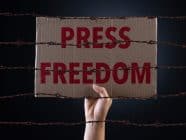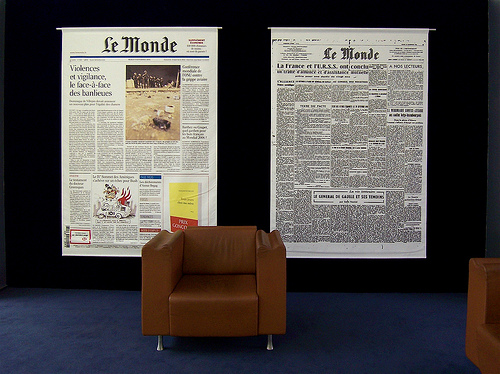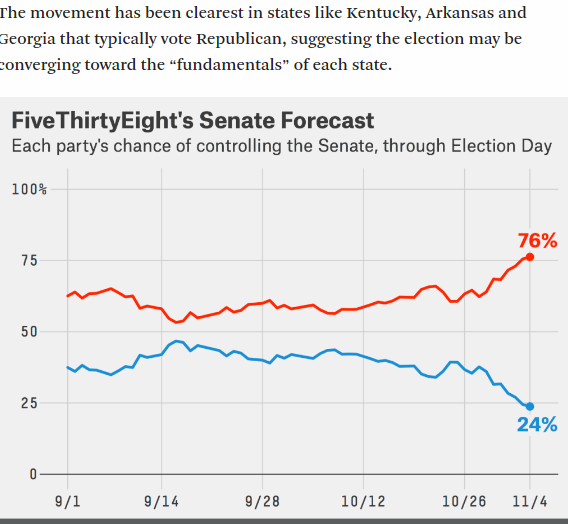 Change takes time, a fact that does not always agree with the human tendency to be impatient.
Change takes time, a fact that does not always agree with the human tendency to be impatient.
At the beginning of the year, we were enthusiastic about the progressive events taking place in Arab regions. Dictators were removed and hundreds of thousands of people took to the streets to voice their struggle for democracy and freedom. And as the season of change continues, here it’s hardly a whimper.
Karim El-Gawhary, a freelance Middle East correspondent for several German-speaking newspapers and head of the Middle East bureau for the Austrian public broadcaster ORF in Cairo, shared some interesting insights on the vicissitude, or lack thereof. In 2010 El-Gawhary saw a storm brewing due to a flurry of activity on the Internet. “This could not be conveyed to Germany, until the subject was on the international media agenda.” In his opinion, certain catchphrases are needed to draw the interest of international media outlets: anything with “Muslim,” “Islam” or “Al-Qaeda.”
Or, perhaps, “bikinis.” Throughout German media outlets, conjectures were made that in the case of a Muslim Brotherhood victory in the general election on November 28, bikinis would be banned from the shores of the Red Sea. The Egyptian Minister of Tourism claimed that the media was blowing the issue out of proportion and that travelers could confidently pack their bikinis and book their vacations.
My interest, however, does not lie in the transition of beachwear, but in the transition of the media. Let’s stay in Egypt. Reporters Without Borders (RWB) has continuously failed to report harassment by the reigning military council, which includes the raids of three TV stations, the suspension of licenses for satellite broadcasters and the seizure of mobile broadcasting equipment belonging to the Egyptian Al Jazeera branch. Journalists criticizing the new leaders were summoned, broadcasts were interrupted, and blogger Alaa Abd El Fatah was arrested due to his account of protestors clashing with authorities on October 9, when 24 people were killed.
Television is a crucial medium in a country where one in four cannot read. Especially now in the run-up to the elections, it is of paramount importance for democracy activists to reach as many people as possible, beyond the well-informed Twitter and Facebook users. Some have established non-profit broadcasts, but time is running out. In a time when state broadcasts should be a haven for balanced reporting, instead Egyptian TV journalists describe a desolate state, as Austin Mackell reports (The Guardian, 5.11.2011). Only the messenger has changed, the military has now become the Ministry of Information. Many journalists pursue low-quality journalism, conduct propaganda or conceal information – at least, until an official statement is issued. Why? Many acquired their jobs through personal relationships and feel indebted; professionalism is low. In other words: press freedom is appreciated, but journalists do not (yet) know how to handle this freedom.
Not only is the vessel important, also the content. Therefore, the acclaim bestowed upon Facebook and Twitter is shortsighted. Free access to information does not necessarily lead to a free society. Regime supporters have the same access as opponents; technology does not solve political and social problems. The deciding factor is a person’s knowledge and convictions.
The situation is challenging for all, for the journalists who report what counts and the editorial teams who publish it. All of us are affected due to our interest in creating a critical public that actively supports and pursues democratic change.
Published in Kölner Stadt-Anzeiger, November 9, 2011
Tags: Al-Jazeera, Arab Spring, Bikinis, Democracy, Egypt, Karim El-Gawhary, Middle East, Muslim Brotherhood, Reporters without Borders













































